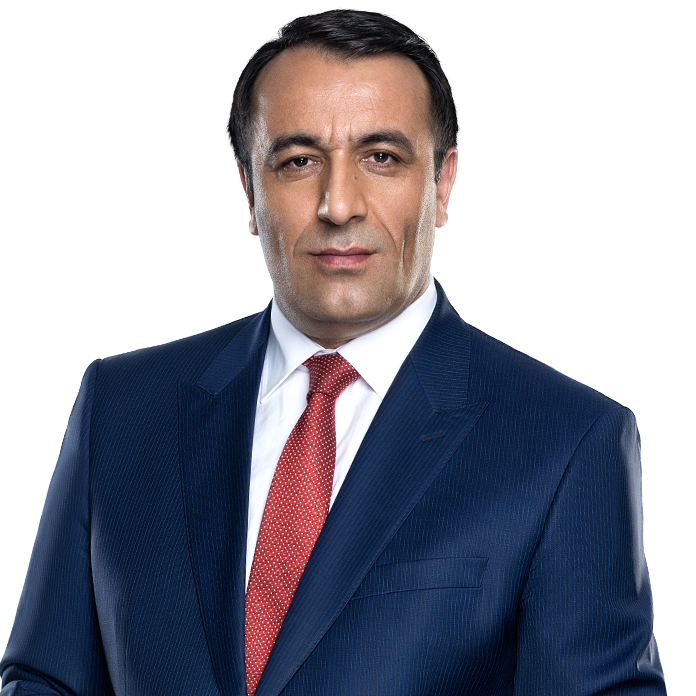
- 03.07.2025, Thursday
- 23:23
Installed capacity in renewable energy
22:5029/05/2024, Wednesday
Next article
Erdal Tanas Karagöl
Erdal Tanas Karagöl was born in 1971 in Turkey’s eastern Erzurum province, where he attended middle and high school. He later traveled to the U.S. and the U.K. where he earned his master’s and doctorate degrees. He earned the title of professor in 2011. In addition to his numerous academic studies, he has written economic reports for the Sabah, Star, and Yeni Şafak newspapers. Karagöl currently writes economic analyses and evaluations twice a week for Yeni Şafak. He is married and has two daughters.

There has been a significant increase in investments for the use of renewable energy. The statistics on installed capacity published by the International Renewable Energy Agency (IRENA) reveal some key findings. COUNTRIES WITH THE HIGHEST INSTALLED CAPACITY China leads the world in installed renewable energy capacity, with 1,453,701 MW. The United States follows with 387,549 MW, and Brazil with 194,085 MW. There are notable differences among these top three countries, with China having a significantly
There has been a significant increase in investments for the use of renewable energy. The statistics on installed capacity published by the International Renewable Energy Agency (IRENA) reveal some key findings.
COUNTRIES WITH THE HIGHEST INSTALLED CAPACITY
China leads the world in installed renewable energy capacity, with 1,453,701 MW. The United States follows with 387,549 MW, and Brazil with 194,085 MW. There are notable differences among these top three countries, with China having a significantly higher capacity.
Following these leaders in renewable installed capacity are India, Germany, Japan, Canada, Spain, France, Italy, and Türkiye.
Countries with substantial renewable energy capacities are typically those with high GDP rankings, whether developed or developing, and are often highly dependent on external energy sources.
The level of installed renewable energy capacity achieved by these countries helps ensure energy security and reduces their economic dependence on external energy sources. Reducing dependency on external energy sources is crucial for achieving economic and political independence.
RENEWABLE ENERGY IN TÜRKİYE
Türkiye's efforts to break into the top 10 countries globally for renewable energy, especially in solar and wind, are significant. Harnessing its renewable energy resources—such as solar, wind, hydro, geothermal, and other renewable sources—represents a strategic step in ensuring energy security.
Increasing the share of renewable energy in Türkiye's energy consumption will reduce the need for imported natural gas, coal, and oil, resulting in less foreign expenditure and, most importantly, a reduction in the current account deficit.
Therefore, it is crucial for Türkiye to continue investing in renewable energy sources to secure its energy supply and become competitive among countries rich in renewable energy resources.
Furthermore, as both developed and developing countries undergo transformations in renewable energy, Türkiye's shift towards diversifying its energy sources with renewables could provide a significant competitive advantage in its economy.
#Türkiye
#Renewable Energy
#Economy
Comments
Hello, the comments you share on our site are a valuable resource for other users. Please respect other users and different opinions. Do not use rude, offensive, derogatory, or discriminatory language.
No comments yet
The floor is all yours.

Click here to receive the most important news of the day by email. Subscribe here.
By subscribing, you agree to receive electronic communications from Albayrak Media Group websites and accept the Terms of Use and Privacy Policy.
LEGAL NOTICE
The BIST name and logo are protected under the "Protected Trademark Certificate" and cannot be used, quoted, or altered without permission.All rights to the information disclosed under the BIST name are entirely owned by BIST and cannot be republished. Market data is provided by iDealdata Financial Technologies Inc. BIST stock data is delayed by 15 minutes.
Cookies are used limited to the purposes of the Law on the Protection of Personal Data No. 6698 and in accordance with the legislation. For detailed information, you can review our cookie policy.






